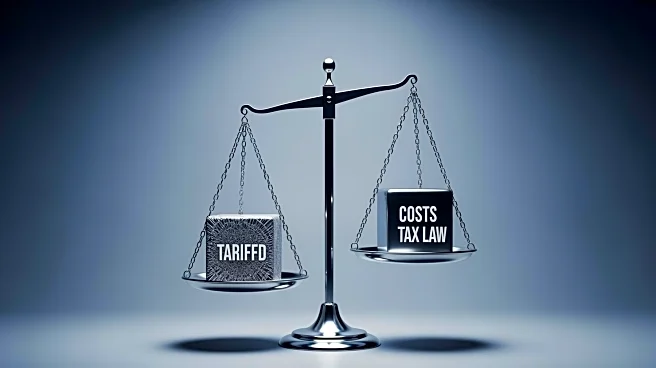Rapid Read • 8 min read
Japan, Australia, and Taiwan have announced the suspension of certain parcel shipments to the United States following the termination of the 'de minimis' tariff exemption under President Trump's administration. This exemption previously allowed goods valued at $800 or less to enter the U.S. duty-free. The policy change aims to reduce low-cost imports and support domestic manufacturing, but has led to disruptions in postal networks and e-commerce supply chains globally. Countries such as India, Thailand, South Korea, and New Zealand have already suspended services, citing logistical challenges and uncertainty over U.S. tariff policies. Japan Post will halt deliveries of small packages valued over $100 to the U.S., while Australia Post will partially suspend services to the U.S. and Puerto Rico. Taiwan's Chunghwa Post has also stopped deliveries due to the inability to prepay customs duties.
AD
The suspension of parcel shipments to the U.S. is significant as it affects international e-commerce and small businesses that rely on low-cost shipping options. The change in tariff policy could lead to increased costs for consumers and businesses, impacting global trade dynamics. Companies like Amazon, Etsy, and Shopify, which connect U.S. consumers with international sellers, may face challenges in maintaining their supply chains. The policy shift reflects broader efforts to bolster U.S. manufacturing but may result in strained international trade relations and economic repercussions for countries dependent on exports to the U.S.
As the tariff exemption ends, businesses and postal services will need to adapt to new regulations and potential cost increases. International postal services may seek alternative solutions to manage customs duties and continue operations. E-commerce platforms might explore strategies to mitigate the impact on their supply chains and customer base. The U.S. government may face pressure from international stakeholders to reconsider or modify the policy to reduce disruptions in global trade.
The policy change raises questions about the balance between protecting domestic industries and maintaining healthy international trade relations. It highlights the complexities of global supply chains and the potential for policy shifts to create unintended consequences for businesses and consumers worldwide. The move may also prompt discussions on the future of international trade agreements and the role of tariffs in economic policy.
AD
More Stories You Might Enjoy











